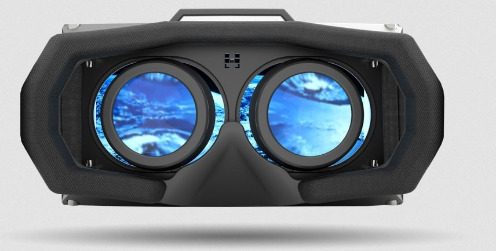Over the years, research has proven that using Virtual Reality (VR) technology can cause behavioral changes, balance issues, cognitive problems, eye problems (soreness, vision changes), headaches, and MORE.
Despite all of this, some medical experts are still recommending VR to their patients. This includes therapists recommending it for Obsessive Compulsive Disorder (OCD). What the hell, doc?
How Apps and VR Therapy Can Help OCD Patients
Obsessive-compulsive disorder is often misunderstood. Here’s what it is, and how you can use technology to help navigate uncertainty.
During the Covid-19 pandemic, it’s become not only acceptable but recommended that we wash our hands frequently, as per Centers for Disease Control (CDC) guidelines. That is, any time we’re in a public place and before or after touching our face. That includes after pumping gas, opening the mailbox, touching door handles—it’s endless, and it won’t end when everyone’s vaccinated and we start to recover from the pandemic.
For people with obsessive-compulsive disorder (OCD), this isn’t something to laugh about—there’s a vast difference between handwashing to stop the spread of a virus and handwashing that’s obsessive. The Mayo Clinic defines OCD as “a pattern of unwanted thoughts and fears (obsessions) that lead you to do repetitive behaviors (compulsions). It comes down to the level of impairment and the degree to which these obsessions and compulsions interfere with daily activities and cause distress.
But OCD is not just handwashing, and it’s not just a personality quirk or a way to describe someone who is “type-A”; it’s a debilitating neuropsychiatric disorder. Between 2 and 3 percent of Americans will suffer from OCD at some point in their lives, and it’s estimated to be the 10th leading cause of disability in the world. The good news is that OCD is treatable, but the first step is receiving an accurate diagnosis.
How Do You Know If It’s OCD, Depression, or Anxiety?
Amy Mariaskin, clinical psychologist and director of the Nashville OCD & Anxiety Treatment Center, is also the artist behind the Instagram account @OCDNashville. She takes complex mental-health concepts and turns them into comics, which has led people to recognize symptoms in themselves and seek treatment.
This is what happened to Steven Smith, CEO of startup NOCD, during his sophomore year of college. Smith was an award-winning quarterback and had an active social life, but he started having anxious thoughts that started in one area and quickly seeped into other areas. The intrusive thoughts took over, and Smith left school and moved home to his parents’ house. Within six months, he went from being a vibrant college quarterback to being homebound.
During this time, Smith received five misdiagnoses. With each misdiagnosis he received treatment, but because they weren’t for OCD, they made his symptoms worse. Marla Deibler, founder and executive director of the Center for Emotional Health, says “The data we have suggests it can take an average of 13 to 15 years to get a proper diagnosis and treatment.”
Mariaskin says many patient in her clinic had been treated before for something other than OCD, only to find their symptoms worseneing because they didn’t receive the right therapy. “Many of them find out they have OCD through engagement with media,” she says, “We joke at the clinic that our biggest referrer is Google.”
After being diagnosed with OCD, the next step is finding treatment. Ash Nadkarni, Harvard Medical School instructor and director of wellness at Brigham & Women’s Hospital, says, “In one study examining patients with OCD who experienced barriers to treatment, 40 percent of patients had not received treatment. Many patients received treatment outside of the gold standard for treatment and undertake ‘talk therapy,’ which lacks the same empirical support as exposure and response prevention (ERP) therapy.”
